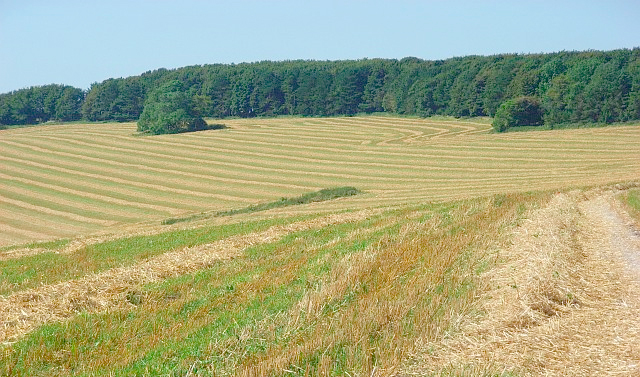
Non-farming buyers are set to exert more influence over the farmland market following the EU referendum "Brexit" vote.
These buyers include investors, high net worth individuals, overseas and lifestyle buyers.
Investors could find farmland more appealing in the face of wider economic uncertainty.
There are already signs that overseas buyers could become more visible in the market, taking advantage of a weakening in the value of sterling, says Strutt & Parker’s head of estate and farm agency Michael Fiddes.
High net worth individuals will continue to see land as an attractive investment with the value of farmland to them not directly related to its earning capacity, he says.
Investors 'renewed interest' in farmland
"We think it is likely that investors will have renewed interest in farmland, viewing it as a safe-haven for wealth in uncertain economic times.
"It is early days, but we have already seen some signs of that happening.
"We are also getting calls from overseas buyers who recognise they will get more for their money as the exchange rate moves in their favour.
"We also know of farmers with rollover relief from development land who will still be seeking land in the right location for them."
The decision to leave the EU has created uncertainty about the future of agricultural policy.
This will undoubtedly make some farmer buyers reluctant to invest, but any drop in the value of sterling improves the UK’s competitive position.
This could lead farmers to feel more positive about the outlook for agriculture, Mr Fiddes points out.
"It is interesting that no deals have fallen through in the days since the vote and people are still bidding on land currently on the market.
"In the short term, it is possible that we could see a decline in the number of transactions and average prices may come under pressure.
"However, we don’t foresee a sharp drop in prices because there are other factors at play."
Such factors could contribute to a widening of the range of prices seen in the UK farmland market, with location, more than quality, the critical factor in what people are prepared to pay for land.
"The average value of arable farmland in England in 2016 is £9,700/acre, but the lowest price paid is £7,250/acre and the highest more than double this at £14,750."
"Some of the difference is caused by land quality, but probably relates more to demand which can be very localised.
"Competition between buyers can mean that similar land can sell for very different prices, which makes market knowledge even more valuable than usual."
Key market messages:
• Market has slowed in 2016, with less land coming forward than during the first half of 2015.
• Arable land values fell back by 1% in Q2 of 2016, compared with Q1.
• Average arable land values are 9% lower than a year ago, back at the same levels as early 2015.
• Uncertainty over future of agricultural policy may cause some adjustment in prices, but no expectation of sharp falls as there are a range of reasons why people buy land.
• Non-farming buyers expected to play bigger role in market following EU referendum result.
• Values expected to continue to show a wide variation dependent on location.
